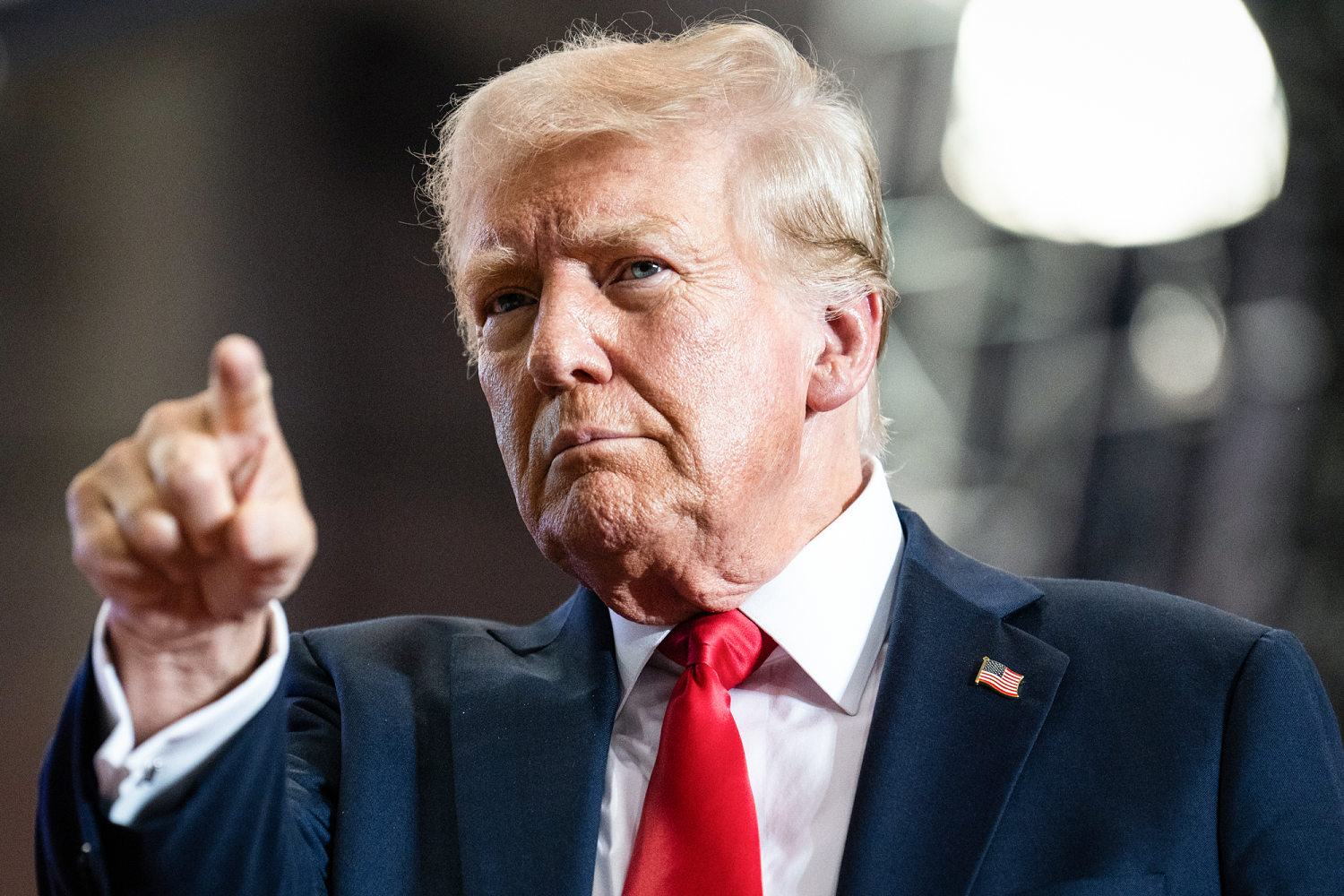
Just as expected, former President Donald Trump’s appearance Wednesday at the National Association of Black Journalists convention came with a bevy of bigotry and lies.
His appearance — which took the form of a panel discussion with three NABJ members moderating — had cast a pall over the convention itself before Trump even showed up, to be honest.
The organization faced a deluge of denunciations from journalists and activists after it announced it would give a platform to Trump, who has denigrated the free press, spread racist propaganda and repeatedly insulted Black journalists. In fact, NABJ has issued several statements in recent years denouncing Trump’s illiberal behavior and attacks on its members.
NABJ announced ahead of the panel that no one in the audience full of journalists would be permitted to ask questions. And the composition of the panel — particularly, its inclusion of Fox News host Harris Faulkner, who has given Trump chummy interviews on a network that has helped spread Trump’s lies and paid a historic legal settlement for doing so — fueled suspicion that NABJ was giving the GOP nominee a relatively friendly platform to lie and peddle propaganda.
Before the event even started, Trump claimed on Truth Social that Vice President Kamala Harris, the likely Democratic presidential nominee, “refused” to speak at the convention as he did. In reality, as news outlets and NABJ leadership confirmed, a scheduling conflict prevented Harris from attending in person. And it was NABJ leadership who refused to allow her to hold a virtual conversation with journalists at the convention. (NABJ said Wednesday that it is “in talks” to hold a Q&A “virtually or in person in September.”)
When it came to the event itself, what many people predicted would be a train wreck lived up to those expectations. Though NABJ leadership assured critics that Trump would be fact-checked live on social media, the PolitiFact feed tasked with doing so didn’t catch all of his lies, and the panelists didn’t catch all of them in real time, either.
Trump began his appearance with a petulant attack on a moderator, ABC senior congressional correspondent Rachel Scott, who asked about his history of racist rhetoric.
“I don’t think I’ve ever been asked a question in such a horrible manner,” Trump responded. “You don’t even say, ‘Hello, how are you?’ Are you with ABC, because I think they’re a fake news network — a terrible network. And I think it’s disgraceful.”
He went on to claim he has “done so much” for Black people. Predictably, he had glowing things to say about Faulkner, whom he described as a “fantastic person.”
Then came the litany of lies. Trump lied and said Harris “happened to turn Black” a number of years ago after decades of identifying only with her Indian heritage. Harris, of course, is an HBCU-educated Black woman who has known she was Black since she was a child, but Trump’s claims align with right-wing disinformation claiming Harris isn’t truly Black — despite her father’s being a Black Jamaican.
He lied — as he did during the presidential debate last month and several times since — about an “invasion” of immigrants from jails and mental institutions taking “Black jobs.” (NABJ honors journalists from outside the U.S., too. One wonders how some of them felt about that claim.)
He lied about Democrats’ stance on abortion, falsely claiming the party is in favor of being able to “execute” babies.
He lied about the criminal cases against him, claiming they exist only because he’s a “political opponent of two people that have weaponized our justice system.”
He lied and claimed those convicted for their actions at the U.S. Capitol on Jan. 6, 2021, show there are “two systems of justice.”
And when he wasn’t outright lying, he was doubling down on disturbing policies. For example, he was asked about his support for immunizing police from prosecution, in response to the recent police killing of Sonya Massey. Trump said the incident “didn’t look good to me” yet still didn’t back off of his previous calls to protect police from legal accountability for abuse.
He said during the NABJ panel:
If I felt, or if a group of people would feel, that somebody was being unfairly prosecuted because the person did a good job, maybe with crime, or made a mistake — an innocent mistake — there’s a big difference between being a bad person and making an innocent mistake. But if somebody made an innocent mistake, I would want to help that person.
This car crash of an event was forecast by NABJ members. It sowed distrust and animus among members toward NABJ leadership. It sparked a protest outside the event, an NABJ convention co-chair’s stepping down from her role and multiple speakers’ backing out of their planned discussions.
It also highlighted some of the broader internal debates that have raged within the organization. As the Columbia Journalism Review wrote in 2018, NABJ has faced divisions over shifting paradigms in journalism, pitting some older members and other traditionalists against younger journalists “attuned to the fast pace of new media.” That rift was at play ahead of this event, with some supporters of the panel arguing NABJ’s tradition of inviting presidential candidates justified inviting Trump this year and critics of the panel arguing Trump’s tendency to lie with abandon — and the fact most of his illiberal views have been broadcast for nearly a decade now — warranted a departure from the norm.
I’m with the latter group. It’s fair for NABJ leadership to have suggested there are lingering questions about what a second Trump term might look like, but the group never adequately explained why Trump — a serial liar who has targeted its members — was best suited to answer them, let alone given the opportunity to do so without better guardrails in place.

Leave a Reply